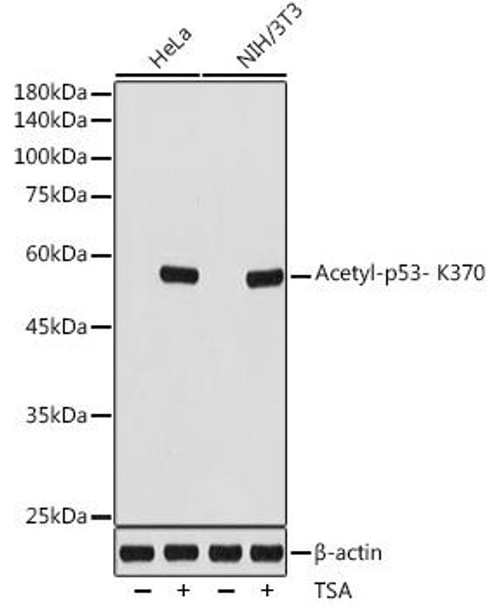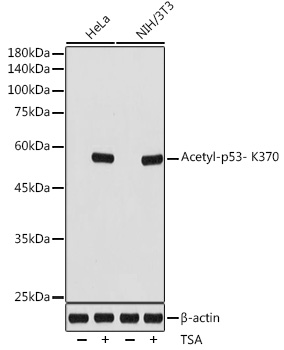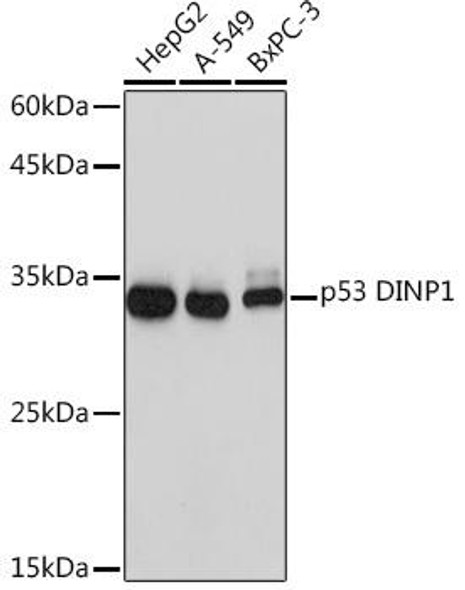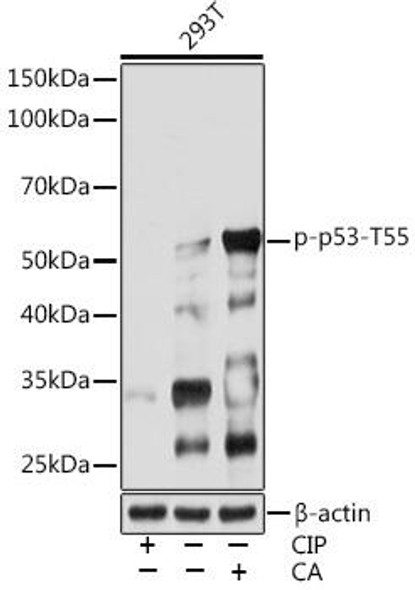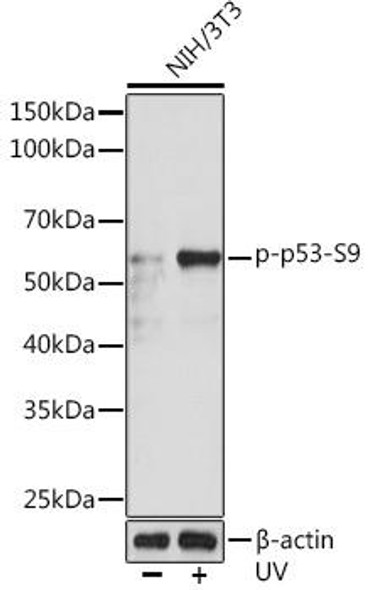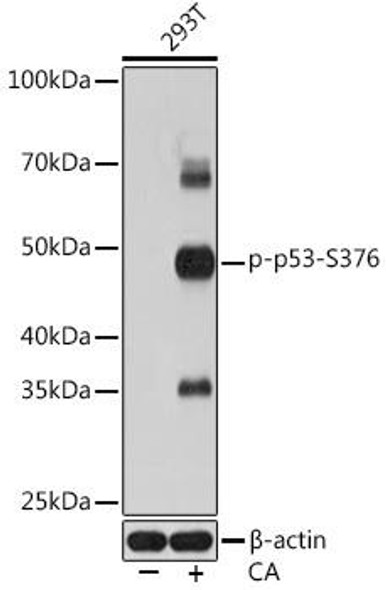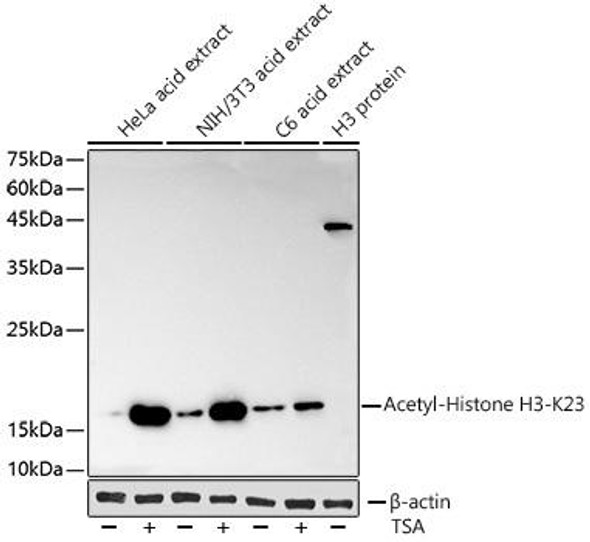Description
Acetyl-p53- K370 Rabbit Monoclonal Antibody (CAB19836)
The Acetyl-p53 K370 Rabbit Monoclonal Antibody (CAB19836) is a highly specific antibody designed for research involving the acetylation of the p53 protein at lysine 370. The antibody is raised in rabbits and is validated for use in various applications, including Western blotting and immunohistochemistry.p53 is a tumor suppressor protein that plays a crucial role in regulating cell growth and apoptosis. Acetylation of p53 at lysine 370 is known to affect its stability and activity, influencing cellular responses to stress and DNA damage.
The Acetyl-p53 K370 antibody allows for the detection and analysis of acetylated p53 in different cell types, providing valuable insights into its role in cancer biology and other diseases.By targeting the acetylated form of p53, researchers can better understand the mechanisms underlying p53 regulation and its impact on cellular processes. This antibody is a valuable tool for studies exploring the therapeutic potential of modulating p53 acetylation in cancer treatment and other disease contexts.
| Product Name: | Acetyl-p53- K370 Rabbit Monoclonal Antibody |
| SKU: | CAB19836 |
| Size: | 20uL, 100uL |
| Isotype: | IgG |
| Host Species: | Rabbit |
| Reactivity: | Human,Mouse,Rat |
| Immunogen: | A synthetic acetylated peptide around K370 of human p53 (P04637). |
| Sequence: | GGSR AHSS HLKS KKGQ STSR H |
| Tested Applications: | WB ELISA |
| Recommended Dilution: | WB,1:500 - 1:1000 |
| Synonyms: | P53; BCC7; LFS1; BMFS5; TRP53; Acetyl-p53- K370 |
| Positive Sample: | HeLa TSA, NIH/3T3 TSA, C6 TSA |
| Conjugate: | Unconjugated |
| Cellular Localization: | Cytoplasm, Endoplasmic reticulum, Mitochondrion matrix, Nucleus, PML body. |
| Calculated MW: | 44kDa |
| Observed MW: | 53kDa |
This gene encodes a tumor suppressor protein containing transcriptional activation, DNA binding, and oligomerization domains. The encoded protein responds to diverse cellular stresses to regulate expression of target genes, thereby inducing cell cycle arrest, apoptosis, senescence, DNA repair, or changes in metabolism. Mutations in this gene are associated with a variety of human cancers, including hereditary cancers such as Li-Fraumeni syndrome. Alternative splicing of this gene and the use of alternate promoters result in multiple transcript variants and isoforms. Additional isoforms have also been shown to result from the use of alternate translation initiation codons from identical transcript variants (PMIDs: 12032546, 20937277).
| Purification Method: | Affinity purification |
| Gene ID: | 7157 |
| Clone Number: | ARC2368 |
| Storage Buffer: | Store at -20℃. Avoid freeze / thaw cycles.Buffer: PBS with 0.02% sodium azide,0.05% BSA,50% glycerol,pH7.3. |

